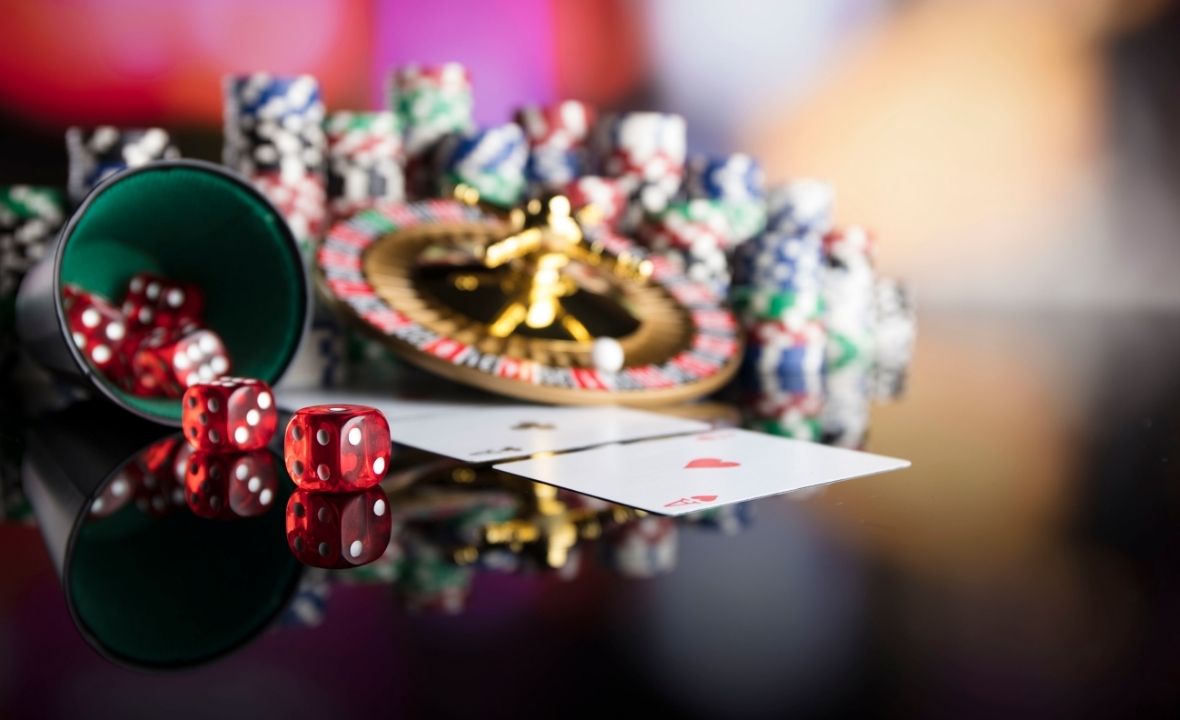Roulette, a popular casino game of chance, has captivated audiences worldwide for decades. Beyond its existence in brick-and-mortar and online casinos, roulette has found its way into various forms of media, including movies, books, and popular culture. This article explores the presence of roulette in these different mediums and examines its portrayal, impact, and significance.
The Origins of Roulette
Before delving into its presence in media, it is essential to understand the origins of roulette. Dating back to the 17th century in France, the game quickly gained popularity across Europe and eventually made its way to America. With its simple yet thrilling gameplay, roulette became synonymous with the glamour and excitement of the casino world.
Roulette in Movies
Depiction of Roulette in Classic Films
Throughout the history of cinema, roulette has been featured in numerous classic films, adding a touch of elegance and intrigue to the storyline. Films like “Casablanca” (1942) and “The Sting” (1973) showcased intense roulette scenes that heightened the suspense and added a layer of sophistication to the characters’ lives. These iconic movies helped solidify roulette’s presence in popular culture.
Modern Films Showcasing Roulette
In recent years, roulette has continued to make appearances in contemporary films, appealing to both gambling enthusiasts and general audiences. Movies such as “Casino Royale” (2006) and “Ocean’s Thirteen” (2007) feature gripping roulette sequences that highlight the game’s allure. The portrayal of roulette in these films emphasizes its role as a symbol of risk, chance, and high-stakes entertainment.
Roulette in Books
Roulette has been utilized in literature as a plot device to create tension, test characters’ morality, and explore themes of luck and destiny. Novels like Fyodor Dostoevsky’s “The Gambler” and Ian Fleming’s “Casino Royale” delve into the psychological aspects of roulette, portraying the game as a catalyst for self-discovery, obsession, and the complexities of human nature.
Books Exploring the Psychology of Roulette
In addition to its role in storytelling, roulette has also inspired non-fiction works that delve into the psychological aspects of the game. Authors and psychologists have analyzed the allure of roulette, exploring themes such as risk-taking behavior, decision-making under uncertainty, and the impact of chance on human psychology. These books offer fascinating insights into the complex relationship between individuals and the game of roulette.
- “The Gambler” by Fyodor Dostoevsky: In this classic novel, Dostoevsky explores the dark depths of human nature through the protagonist’s addiction to gambling, particularly roulette. The story delves into the psychological turmoil caused by the game, as the main character becomes entangled in a web of obsession and self-destruction.
- “Casino Royale” by Ian Fleming: This iconic James Bond novel introduces readers to the suave and sophisticated world of espionage and high-stakes gambling. Roulette plays a significant role in the plot, as Bond faces off against his nemesis in a thrilling game of chance. The book explores the psychological strategies and mind games employed by both players, showcasing the tension and intensity of the roulette table.
- “The Perfect Bet: How Science and Math Are Taking the Luck Out of Gambling” by Adam Kucharski: This non-fiction work takes a scientific approach to understanding the game of roulette. Kucharski delves into the mathematics and statistical probabilities behind the game, exploring how strategies and calculations can influence outcomes. The book offers readers a glimpse into the psychology of gamblers and the interplay between chance and skill.
- “Fooled by Randomness: The Hidden Role of Chance in Life and in the Markets” by Nassim Nicholas Taleb: While not solely focused on roulette, this book explores the broader concept of chance and its impact on our lives. Taleb delves into the psychology of decision-making under uncertainty, discussing the role of luck and randomness in various aspects of life, including gambling. The book challenges readers to reconsider their perceptions of luck and probability.
- “The Man Who Broke the Bank at Monte Carlo” by Robin Quinn:
This historical fiction novel tells the story of Charles Wells, a real-life gambler who famously broke the bank at the Monte Carlo casino in 1891. The book delves into the psychology of risk-taking and the allure of roulette, showcasing the protagonist’s audacious attempts to beat the odds. It explores the fine line between luck and skill and the consequences of obsession.
These books offer readers a range of perspectives on roulette, from its portrayal as a plot device to its exploration through psychology and mathematics. Whether through gripping fictional narratives or analytical non-fiction, these works shed light on the complexities and allure of the game, providing readers with an immersive understanding of the role roulette plays in literature and human psychology.
Roulette in Popular Culture
▪ Roulette in Music
- Roulette’s influence extends beyond the realms of cinema and literature. The game has also found its way into music, becoming a metaphorical symbol for life’s unpredictability and the pursuit of excitement. Numerous songs, such as “Russian Roulette” by Rihanna and “The Winner Takes It All” by ABBA, incorporate roulette imagery to convey emotions of risk, luck, and the exhilaration of taking chances.
▪ Roulette in Art and Fashion
- The visual arts and fashion industries have drawn inspiration from roulette, incorporating its elements into their creations. Paintings, photographs, and sculptures have depicted roulette tables, wheels, or the game’s symbolism to evoke themes of chance, fortune, and the cyclical nature of life. Fashion designers have used roulette motifs in their collections, infusing garments with the game’s colors, patterns, and iconic imagery.
The Symbolism of Roulette
Roulette carries significant symbolism in various media forms. It represents the unpredictability of life, the allure of risk, and the pursuit of fortune. The spinning wheel and the bouncing ball capture the essence of chance, making roulette an apt metaphor for the human experience. Whether it’s a plot device, a visual motif, or a lyrical reference, roulette symbolizes the inherent uncertainties we face in life and our constant desire for excitement and triumph.
The Impact of Roulette in Media
The presence of roulette in movies, books, and popular culture has undoubtedly influenced the perception and fascination surrounding the game. It has introduced audiences to the thrill of the casino and contributed to the romanticized image of gambling. Furthermore, the portrayal of roulette in media has often shaped public opinion, both positively and negatively, by depicting its allure and highlighting the potential dangers of excessive gambling.
Roulette’s presence in movies, books, and popular culture has solidified its status as an iconic symbol of chance, risk, and entertainment. From classic films to contemporary novels, roulette continues to captivate audiences and serve as a metaphor for life’s uncertainties. Through its portrayal in various media forms, roulette showcases its enduring appeal and remains an integral part of our cultural landscape.
Frequently Asked Questions (FAQs)
- Q: Can roulette be traced back to a specific country? A: Roulette originated in France during the 17th century and quickly gained popularity across Europe.
- Q: How has roulette influenced the fashion industry? A: Roulette motifs and imagery have been incorporated into fashion designs, reflecting the game’s colors, patterns, and symbolism.
- Q: Are there any famous songs that reference roulette? A: Yes, songs like “Russian Roulette” by Rihanna and “The Winner Takes It All” by ABBA incorporate roulette imagery in their lyrics.
- Q: What psychological aspects are explored in books about roulette? A: Books about roulette delve into themes such as risk-taking behavior, decision-making under uncertainty, and the impact of chance on human psychology.
- Q: How has the portrayal of roulette in movies shaped public opinion? A: Films have both romanticized the allure of roulette and highlighted the potential dangers of excessive gambling, influencing public perception.


Leave a Reply